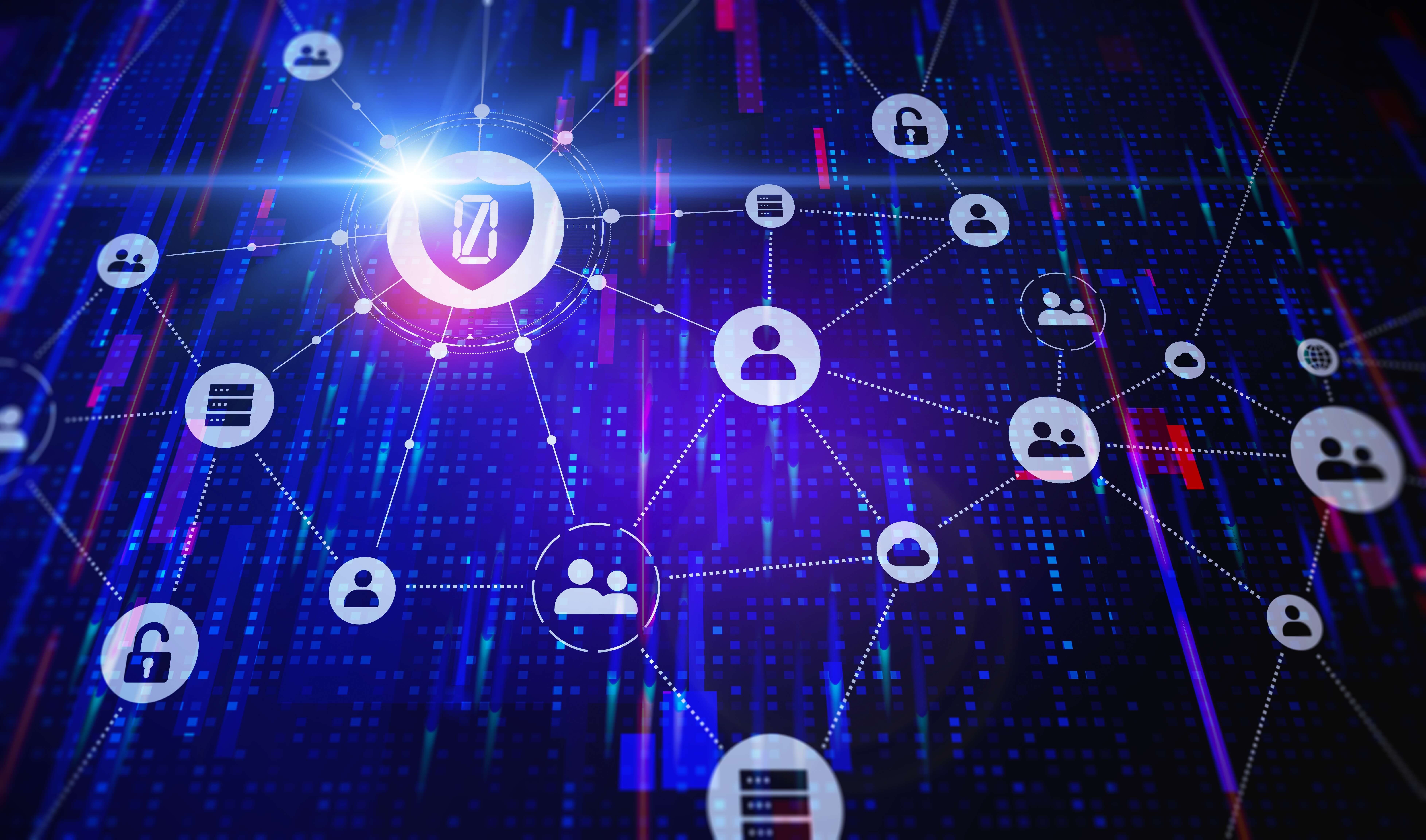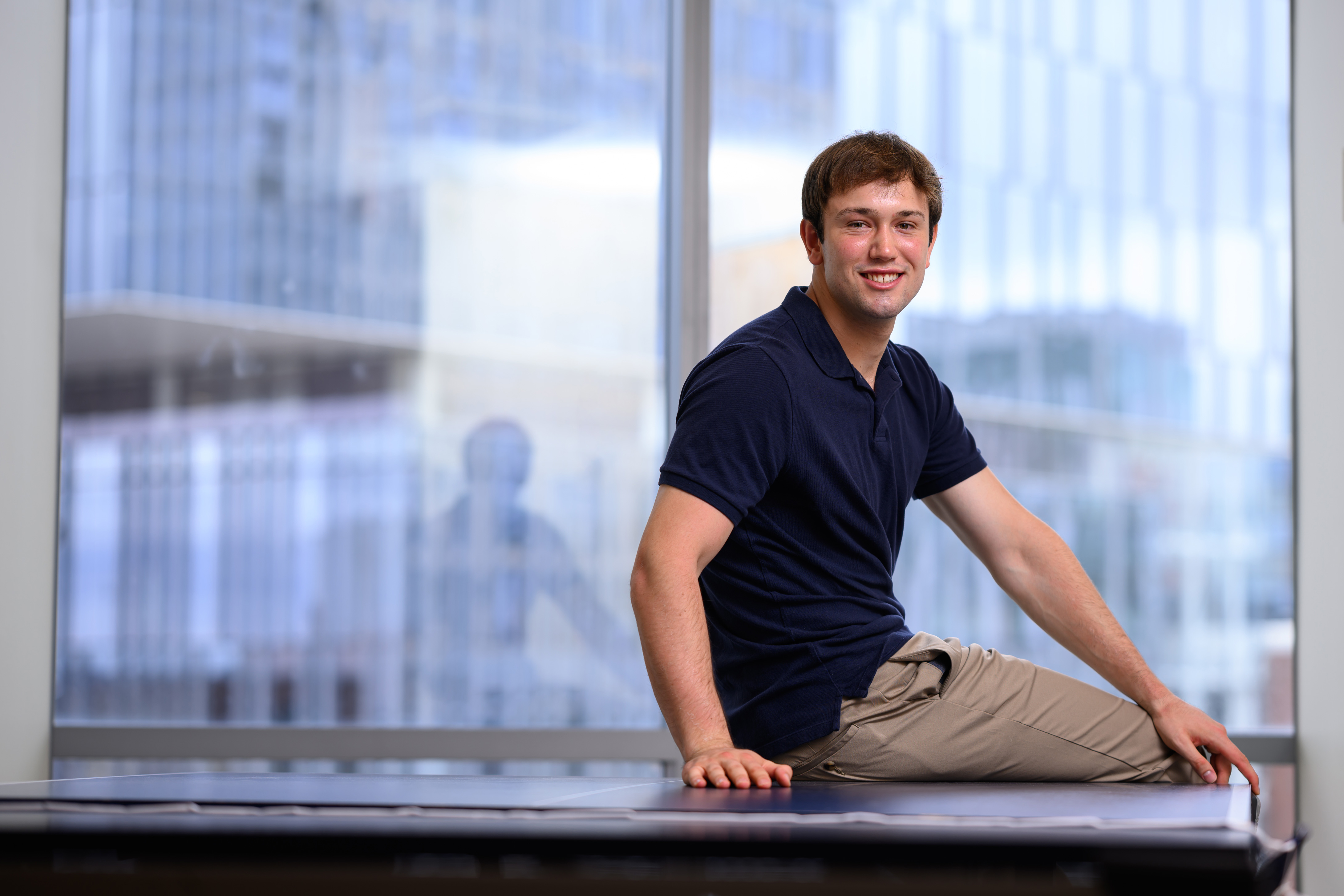Upon the advice of one of his soccer teammates, James Simon enrolled in 14.73 (The Challenge of World Poverty) as a first-year student to fulfill a humanities requirement. He went from knowing nothing about economics to learning about the subject from Nobel laureates.
The lessons created by professors Esther Duflo and Abhijit Banerjee revealed to Simon an entirely new way to use science to help humanity. One of the projects Simon learned about in this class assessed an area of India with a low vaccination rate and created a randomized, controlled trial to figure out the best way to fix this problem.
“What was really cool about the class was that it talked about huge problems in the world, like poverty, hunger, and lack of vaccinations, and it talked about how you could break them down using experiments and quantify the best way to solve them,” he says.
Galvanized by this experience, Simon joined a research project in the economics department and committed to a blended major in computer science, economics, and data. He began working on a research project with Senior Lecturer Sara Ellison in 2021 and has since contributed to multiple research papers published by the group, many concerning developmental economic issues. One of his most memorable projects explored the question of whether internet access helps bridge the gap between poor and wealthy countries. Simon collected data, conducted interviews, and did statistical analysis to develop answers to the group’s questions. Their paper was published in Competition Policy International in 2021.
Further bridging his economics studies with real-world efforts, Simon has become involved with the Guatemalan charity Project Somos, which is dedicated to challenging poverty through access to food and education. Through MIT’s Global Research and Consulting Group, he led a team of seven students to analyze the program’s data, measure its impact in the community, and provide the organization with easy-to-use data analytics tools. He has continued working with Project Somos through his undergraduate years and has joined its board of directors.
Simon hopes to quantify the most effective approaches to solutions for the people and groups he works with. “The charity I work for says ‘Use your head and your heart.’ If you can approach the problems in the world with empathy and analytics, I think that is a really important way to help a lot of people” he says.
Simon’s desire to positively impact his community is threaded through other areas of his life at MIT. He is a member of the varsity soccer team and the Phi Beta Epsilon fraternity, and has volunteered for the MIT Little Beavers Special Needs Running Club.
On the field, court, and trail
Athletics are a major part of Simon’s life, year-round. Soccer has long been his main sport; he joined the varsity soccer team as a first-year and has played ever since. In his second year with the team, Simon was recognized as an Academic All-American. He also earned the honor of NEWMAC First Team All-Conference in 2021.
Despite the long hours of practice, Simon says he is most relaxed when it’s game season. “It’s a nice, competitive outlet to have every day. You’re working with people that you like spending time with, to win games and have fun and practice to get better. Everything going on kind of fades away, and you’re just focused on playing your sport,” he explains.
Simon has also used his time at MIT to try new sports. In winter 2023, he joined the wrestling club. “I thought, ‘I’ve never done anything like this before. But maybe I’ll try it out,’” he says. “And so I tried it out knowing nothing. They were super welcoming and there were people with all experience levels, and I just really fell in love with it.” Simon also joined the MIT basketball team as a walk-on his senior year.
When not competing, Simon enjoys hiking. He recalls one of his favorite memories from the past four years being a trip to Yosemite National Park he took with friends while interning in San Francisco. There, he hiked upward of 20 miles each day. Simon also embarks on hiking trips with friends closer to campus in New Hampshire and Acadia National Park.
Social impact
Simon believes his philanthropic work has been pivotal to his experience at MIT. Through the MIT Global Research and Consulting Group, which he served as a case leader for, he has connected with charity groups around the world, including in Guatemala and South Africa.
On campus, Simon has worked to build social connections within both his school and city-wide community. During his sophomore year, he spent his Sundays with the Little Beavers Running Team, a program that pairs children from the Boston area who are on the autism spectrum with an MIT student to practice running and other sports activities. “Throughout the course of a semester when you’re working with a kid, you’re able to see their confidence and social skills improve. That’s really rewarding to me,” Simon says.
Simon is also a member of the Phi Beta Epsilon fraternity. He joined the group in his first year at MIT and has lived with the other members of the fraternity since his sophomore year. He appreciates the group’s strong focus on supporting the social and professional skills of its members. Simon served as the chapter’s president for one semester and describes his experience as “very impactful.”
“There’s something really cool about having 40 of your friends all live in a house together,” he says. “A lot of my good memories from college are of sitting around in our common rooms late at night and just talking about random stuff.”
Technical projects and helping others
Next fall, Simon will continue his studies at MIT, pursuing a master’s degree in economics. Following this, he plans to move to New York to work in finance. In the summer of 2023 he interned at BlackRock, a large finance company, where he worked on a team that invested on behalf of people looking to grow their retirement funds. Simon says, “I thought it was cool that I was able to apply things I learned in school to have an impact on a ton of different people around the country by helping them prepare for retirement.”
Simon has done similar work in past internships. In the summer after his first year at MIT, he worked for Surge Employment Solutions, a startup that connected formerly incarcerated people to jobs. His responsibility was to quantify the social impacts of the startup, which was shown to help the unemployment rate of formerly incarcerated individuals and help high-turnover businesses save money by retaining employees.
On his community work, Simon says, “There’s always a lot more similarities between people than differences. So, I think getting to know people and being able to use what I learned to help people make their lives even a little bit better is cool. You think maybe as a college student, you wouldn’t be able to do a lot to make an impact around the world. But I think even with just the computer science and economics skills that I’ve learned in college, it’s always kind of surprising to me how much of an impact you can make on people if you just put in the effort to seek out opportunities.”






